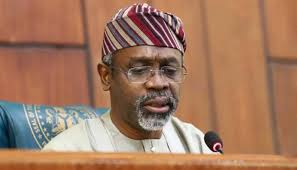Speaker of the House of Representatives, Hon. Femi Gbajabiamila, has stressed the need for the Nigerian government to put in place a legal framework for Privatisation and Public Private Partnerships (PPPs) to enable government collaboration with the private sector to meet Nigeria’s public infrastructure demands and also ensure that the country maximizes the value potential of existing assets.
The Speaker canvassed the legislative option on Monday at a public hearing organised by the House of Representatives Committee on Privatisation and Commercialisation of Government Assets.
The lawmaker said that his call was predicated on the critical revenue challenges the country was currently facing and the need to generate more funds through the privatization programme for growing public finance obligations
He commended the lawmakers for their efforts to give thorough consideration to the Bill which proposes to make significant changes to the way the country manages its public assets and urged all the relevant stakeholders to work with the House Committee on Privatisation and Commercialisation to actualize the “noble aspirations that underpin this legislative proposal.
In his contributions at the forum, Minister of Works and Housing, Mr. Babatunde Fashola, called for the audit of all government’s assets that had been concessioned or privatized over the past years, noting that there are certain assets that the private sector has not been able to effectively managed
The minister stressed that there was need to be more circumspect about certain types of assets that are being concessioned or privatised.
In his remarks, the Chairman of the Committee, Hon. Ibrahim Misau, said the implementation of the privatisation and commercialisation policy had, over the years, been dogged with numerous setbacks despite its good intentions, hence the need to amend the Act.
He said it was based on this that the House was proposing a more potent bill to replace the existing one for improved efficiency and management of the nation’s public assets.
Commenting, the Director General, Bureau of Public Enterprises (BPE), Mr. Alex Okoh, agreed with the minister that not all public infrastructure and assets needed to be privatised.
He maintained that those that needed to be privatised or concessioned needed to be guided by clear and robust piece of legislation.
He expatiated: “We are in a precarious situation. The country has only recently emerged from recession following the destructive impact of COVID-19 pandemic. However, the resultant constraints in the fiscal space are still very much evident.
“Our debt stock is rising while our revenue is declining. This trend becomes more worrisome when considered against certain key economic indices”, Okoh added
While noting that Nigeria’s debt to GDP ratio is on average 34 percent which is higher than the international threshold of 30 percent, the Director-General also lamented that the nation’s debt service to revenue ratio was 98 per cent, far above the World Bank’s threshold of 22.5 percent.
He said: “Notwithstanding this gloomy reality, there is still the possibility of emerging from this dark tunnel and into the light of economic prosperity by seeking to put in place a credible and robust mechanism to reset and reform the economy, especially a robust asset optimisation and public, private partnership framework to attract private capital into infrastructure development, thereby stimulating economic growth.
“From inception to date, a total of 234 public enterprises have been successfully reformed by way of privatisation, commercialisation and in some cases, concession”, he added.
Okoh pointed out that the globally acclaimed telecom revolution in Nigeria, which has created a teledensity of about 96 percent in 20 years, with a current contribution of 14 percent to the national GDP, was a product of the reform of the telecoms sector, spearheaded by the BPE.






